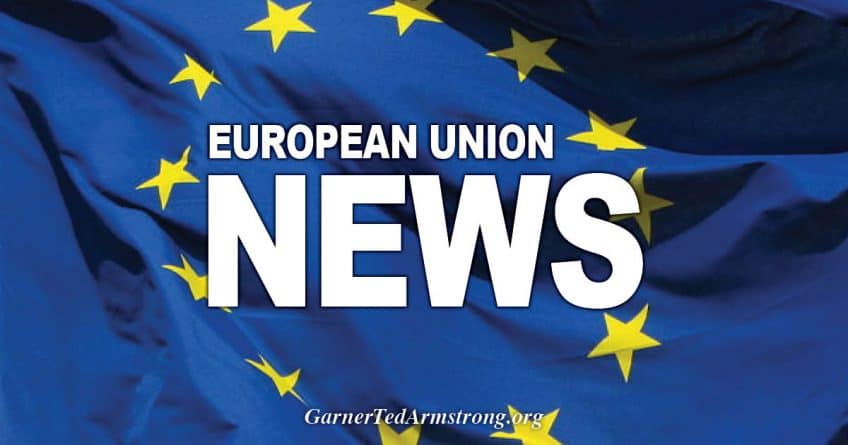The SPD, the Greens and the pro-business FDP on Wednesday (24 November) presented a deal to form a new German government, including a European reform agenda that should lead to a federal Europe.
“My most important message: the traffic light [coalition] stands,” Olaf Scholz told press – a reference to the parties respective colours red-yellow-green.
“We will modernize our country, build up a climate-neutral industry with cutting-edge technology that is ‘Made in Germany’,” he said, describing what the deal called the “socio-ecological market economy.”
“This will not come cheap,” he said. “This new coalition will need to make massive investments while adhering to national debt brake.”
At the start of the talks, many expected the negotiations to drag on due to the differences between the Greens and business-friendly FDP.
But a final compromise was reached on Wednesday, two months after the election, with the Greens abandoning their plans to introduce tougher speed limits, and FDP accepting a stronger than expected climate mandate (that includes an accelerated coal phaseout by 2030, eight years earlier than previously planned) and an end to power generation from gas by 2040.
EU federation?
The 177-page agreement also proposes ambitious EU reform. It will push for a Conference on the Future of Europe to turn into a constitutional convention, while supporting “necessary treaty changes” that will “lead developments to a European federal state.”
Top of the list is a new system for European elections that allows transnational lists for the European Parliament, which should also get a right of initiative – in other words the right to propose new legislation.
Currently, MEPs in the EU parties represent a national party. This move will start a move to a broader decentralized European voting system.
The coalition also favours the next commission president to be a ‘Spitzenkandidat’ [German for ‘lead candidate’], continuing the disputed system whereby individual EU parties put forward their own top candidate for the presidency.
Germany has in the past sabotaged its own system on this, pushing Ursula von der Leyen ahead of Frans Timmermans, S&D’s Spitzenkandidat and initially considered favourite for the top spot.
Finally, the it wants a stronger EU foreign office by replacing the unanimous voting system requiring all EU ministers to agree, with a qualified majority, overseen by a dedicated EU foreign minister.
Finance ministry goes to FDP
The Greens will receive the ministries of economy and climate and of foreign affairs. They also get the right to propose a future EU commissioner, in case Ursula von de Leyen does not get re-elected – a first for the party.
Having fiscal hawk Christian Lindner as finance minister, the country’s second-most powerful position following the chancellery was one of the FDP’s make-or-break conditions.
And while Lindner told press Germany will continue to be an “advocate for sound finances”, but also stressed Germany and Europe need investment to modernise.
The agreement does not make mention of a return to pre-pandemic strict fiscal discipline, which some feared, but instead states EU-fiscal rules need to be “developed further” and should be “simpler and more transparent.”
It also adds the goal of possible reform must be to “secure growth, safeguard debt sustainability and foster green investment.
“No red lines here, but an open and constructive opening position for negotiations,” Lucas Guttenberg of the Delors Centre, a think-tank based in Berlin, tweeted.
Rule of law
Significantly, the agreement also included stronger wording on the rule of law. MEP Sven Giegold (Greens/EFA), who negotiated on behalf of the Greens, told press the new government feels the EU rule of law mechanism has not been used “decisively enough in the recent years.”
The agreement calls on the commission not to release recovery fund money to countries that do not ensure an independent judiciary, adding that Germany will vote against releasing the funds if countries do not respect the rule of law.
However, it does not specifically mention Poland or Hungary – which have both challenged the mechanism at the European Court of Justice (ECJ).
Hungary has also introduced legislation that targeted LGBTIQ people.
Sustainable taxonomy
The document does not mention the EU taxonomy for sustainable investment.
In recent weeks, French president Emmanuel Macron has put pressure on the commission and other member states to include nuclear energy in the bloc’s sustainable investment rules.
France has entered an alliance with pro-gas member states to form a majority at the next EU council meeting in December to push through the controversial energy source, and label it suitable for sustainable investment.
Earlier on Wednesday, a group of MEPs pushed the German and French governments not to label nuclear and gas as green.
In response, Giegold declined to say what the new government’s stance was on the potential inclusion of gas in the green rulebook, adding that “it is not in the German interest to start with a fight over the taxonomy.
Members of the respective coalition parties will still need to vote for the deal, but this is expected to be a formality, and the intention is that SPD leader Olaf Scholz will be elected chancellor by the Bundestag in the week of 6 December.
Source: https://euobserver.com/democracy/153624
[Disclaimer]








